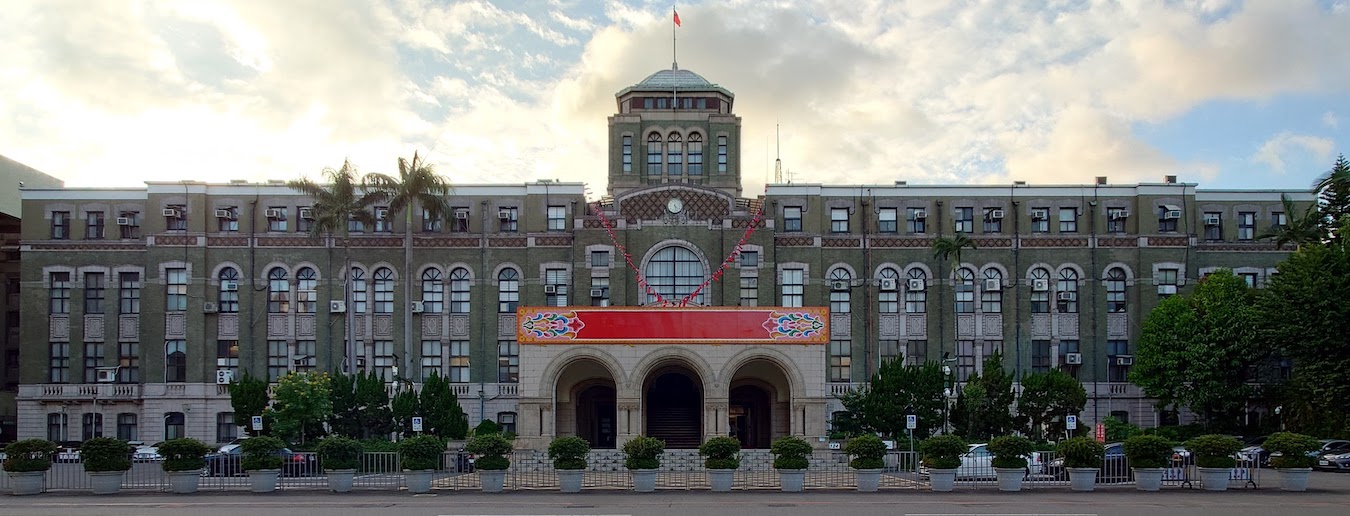by Brian Hioe
語言:
English
Photo Credit: mailer_diablo/WikiCommons/CC BY-SA 3.0
A NUMBER OF civil society groups, as well as political parties, have sought to call attention to the current procedure by which justices on the Constitutional Court are picked by the president. Namely, this will be an issue in the near future when four justices that started their terms on October 1st, 2015, are set to retire on September 30th.
Justices are appointed for eight-year terms, after constitutional amendments passed in 2008. But after the four justices, who were appointed during the Ma administration, retire this will mean that all current justices were appointed under the Tsai administration.
As such, groups such as Taiwan Society, Taiwan Jury Association, and legislators Jang Chyi-lu of the TPP, Lin Szu-ming of the KMT, and former Tainan county magistrate Su Huan-chih, previously a DPP member, have called on Tsai to not move forward with appointing all four justices. Tsai has been called on to allow vice president William Lai, who is expected to be the DPP’s next presidential candidate, and the opposition KMT to appoint some justices. The groups and legislators include members of both the pan-Blue and pan-Green camps.
In particular, justices were originally appointed four years apart from each other in two cohorts. However, this failed to take place after former president Ma Ying-jeou disregarded this precedent to appoint seven justices during his administration, which has resulted in the current situation. As such, it is advocated by the groups that a further constitutional amendment be made to prevent this situation in the future.
The appointment of judges has long been a contentious issue in Taiwanese politics. While the terms of justices are limited, unlike the lifetime appointment system that exists in the US, there has long been backlash from civil society groups against “dinosaur judges” appointed during periods of KMT rule. Such judges are accused of making rulings to benefit fellow members of the same political camp or on the basis of highly conservative social views that are out of touch with contemporary values.
 Photo credit: Yu tptw/WikiCommons/CC BY-SA 4.0
Photo credit: Yu tptw/WikiCommons/CC BY-SA 4.0
Surveys show that 80% to 90% of the Taiwanese public does not trust professional judges. This is one of the contributing factors to calls for judicial reform in past years.
To this extent, Taiwan’s judicial system is currently in the process of transition to a lay judge system. Taiwan does not use a jury system, with decisions historically made by judges, but the lay judge system will allow for rulings to be made by members of the citizenry alongside legal professionals. Under the system, six “lay judges” from the citizenry would make rulings alongside three professional judges.
The introduction of the lay judge system was seen as a compromise between transitioning to a full jury system and retaining the current system. Backlash against the refusal to shift to a jury system led to over twenty days of consecutive protests in July 2020, which included a brief sit-in outside of the Legislative Yuan. That being said, the DPP, Ministry of Justice, and surveys from the Taiwan Database for Empirical Legal Studies and National Cheng Chi University’s Election Study Center showed support for the lay judge system. This contrasted with polling from the TPP that suggested that the public supported the lay judge system and jury system proceeding in parallel.
Critics of the lay judge system, such as from the Judicial Reform Foundation, were concerned that the new system might actually strengthen the power of professional judges if lay judges simply listen to the views of professional judges. Either way, the DPP used its majority in the legislature to push through such changes, and the changes would be trialed for six years. But, in the years since, the use of the lay judge system has been criticized in that there have not actually been many trials using it–in February, the Taiwan Jury Foundation criticized that since January, only one trial had taken place using the system.
It is to be seen whether the Tsai administration moves ahead with appointing justices, or whether it changes course because of such criticisms. Regardless, though William Lai was originally appointed to the committee to determine new justices, he has since resigned because of his participation in the DPP presidential primary. This is with the view that, as such, his participation in the process would not be seen as neutral and impartial.

